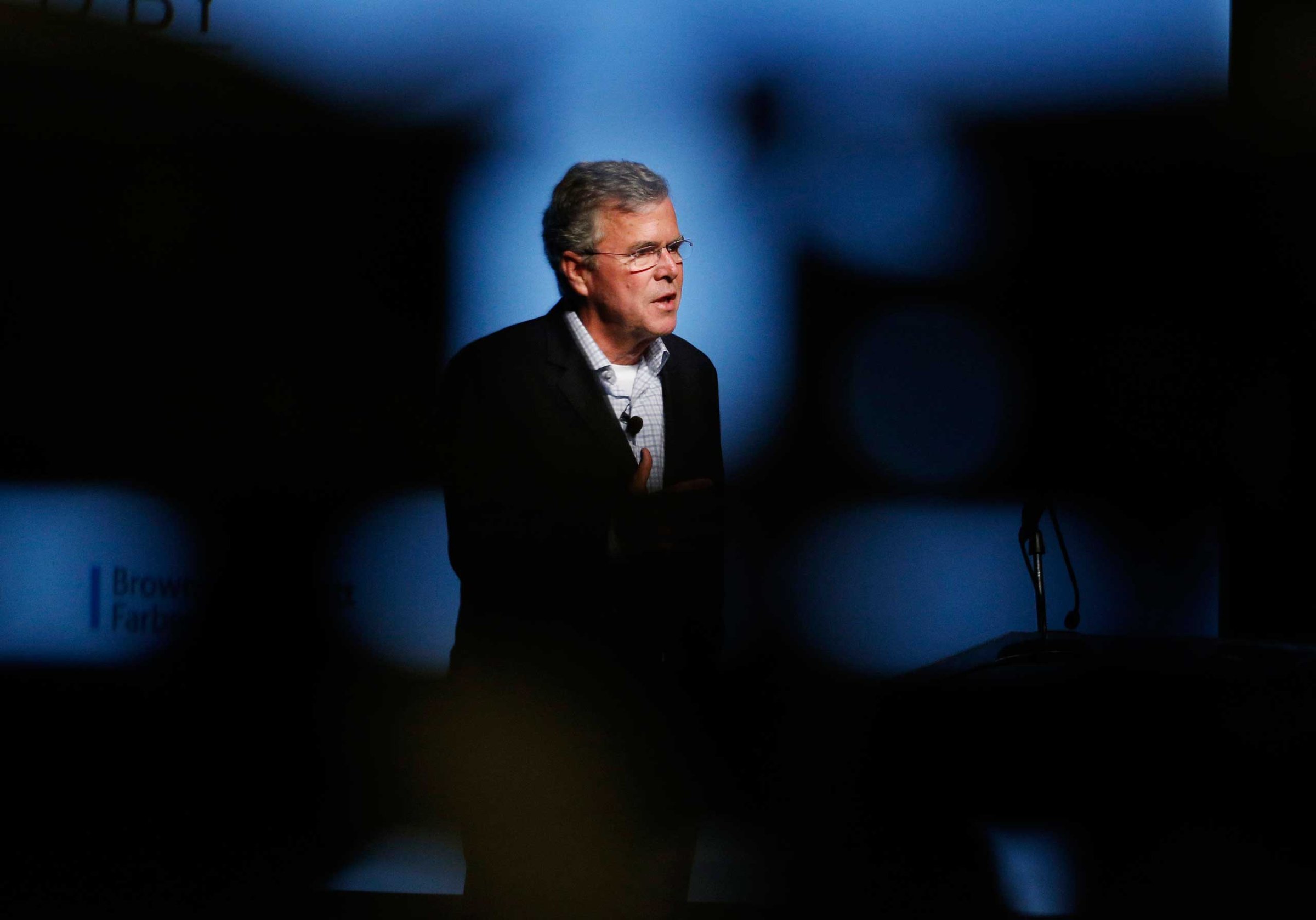
Former Florida Gov. Jeb Bush pledged to challenge the ways of “Mount Washington” Monday, highlighting his record in Tallahassee and how he hopes to “disrupt” the federal government by challenging a “culture of spending.”
“The overspending, the overreaching, the arrogance, and the sheer incompetence in that city – these problems have been with us so long that they are sometimes accepted as facts of life,” Bush said of Washington, D.C. “But a president should never accept them, and I will not. We need a president willing to challenge the whole culture in our nation’s capital – and I mean to do it.”
In remarks outlining a portion of his domestic policy agenda, Bush reiterated his call for sustained 4 percent annual economic growth and hinted at forthcoming tax policy and entitlement reform proposals.
“The ultimate disruption of Washington is to reject, as I do, the whole idea of a government forever growing more, borrowing more, and spending more – beyond anyone’s ability to control or even comprehend,’ he said.
Bush embraced a federal Balanced Budget Amendment to the Constitution to limit government spending, and said he supported efforts by House Ways and Means Committee Paul Ryan to give presidents a line-item veto over expenditures. “It’s time to revive Veto Corleone,” referencing the nickname he earned in Florida for cutting down spending bills.
Bush suggested a “three out, one in” rule for federal workers in a bid to cut government payrolls, with exceptions for national security jobs. “This policy can, on its own, reduce the size of the federal bureaucracy by 10 percent within 5 years,” he stated.
Calling for broad reforms to civil service laws, Bush said he wants to bring federal pay in line with private sector pay, eliminate across-the-board raises for workers, while making it easier to fire under-performers.
Highlighting lobbying reforms he signed in Florida, Bush said he hoped to sign similar legislation in Washington, saying the definition of “lobbyist” should be expanded to those who work as ‘government relations’ and ‘government affairs’ specialists, and that their meetings with lawmakers should be publicly disclosed online.
Bush also endorsed an extension of a ban on lobbying by former members of the House and Senate to six years, while saying he would support legislation tying lawmaker pay to their voting attendance — a veiled swipe at the Senators running for the White House who have missed votes on the campaign trail.
“A bill to dock the pay of absentee members might not pass the House or Senate,” Bush said, “but at least it would get them all there for a vote.”
Bush has long had government largess in his sights. In his second inaugural address in 2003, he rhapsodized about his dream of gutting government. “There would be no greater tribute to our maturity as a society,” he declared on the steps of the state capitol, “than if we can make these buildings around us empty of workers–silent monuments to the time when government played a larger role than it deserved or could adequately fill.”
More Must-Reads from TIME
- Inside Elon Musk’s War on Washington
- Meet the 2025 Women of the Year
- The Harsh Truth About Disability Inclusion
- Why Do More Young Adults Have Cancer?
- Colman Domingo Leads With Radical Love
- How to Get Better at Doing Things Alone
- Cecily Strong on Goober the Clown
- Column: The Rise of America’s Broligarchy
Contact us at letters@time.com